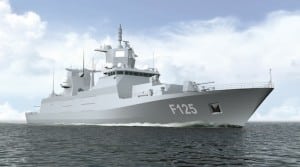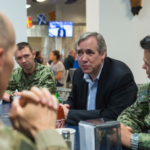
The chairman of the Senate Armed Services Committee urged the Navy Feb. 28 to open its Future Frigate program to more competition to ensure it gets the most capable ship possible.The Navy plans to base the frigate on one of two existing Littoral Combat Ship (LCS) variants: the Lockheed Martin [LMT] Freedom or Austal USA Independence. But Sen. John McCain (R-Ariz.) wants the service to consider more designs, both American and foreign. While Navy officials have praised LCS’s performance, McCain…

 By
By 











